Moguai on the early days and embracing technology - old and new
He could have been a butcher, but the German DJ/producer decided that his future lay in music…
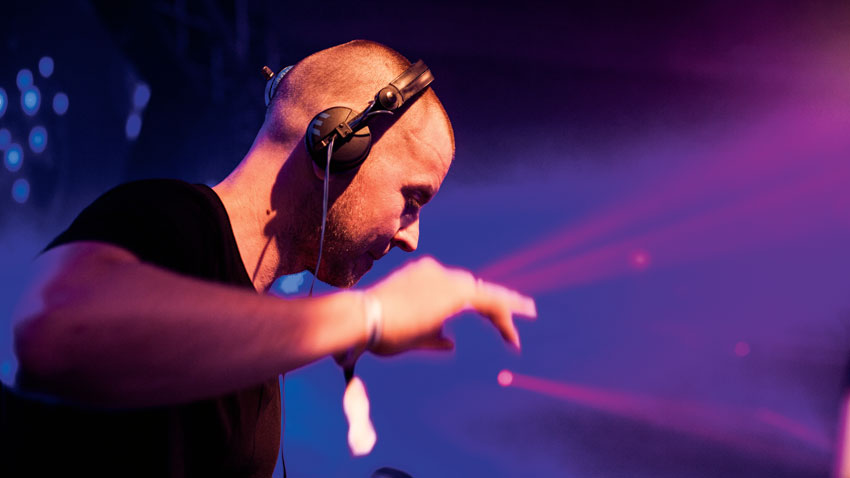
It's always interesting to hear about how DJs and producers made a living before they turned 'professional' and started earning a few quid from music. Calvin Harris reportedly worked in a fish processing plant, Goldie - Goldie MBE, to give him his official title - was a graffiti artist, and Nicky Romero served time as a bartender, but there can't be many who used to earn their crust as a butcher!
"My family has owned a butcher's shop for over 50 years," explains André Tegeler, aka German DJ/producer/label boss Moguai. "As soon as I left school, my parents said, 'OK, it's time for you to earn some money'. I was pretty good at it, too. I became the youngest qualified butcher in the whole of Germany!"
Unfortunately for the family business, it wasn't long before he tired of flesh and bone, opting for a degree in law, before being seduced by hardcore techno and punk. This was music that annoyed the grown-ups, and young Tegeler realised that he'd finally stumbled upon his future.
Now regarded as one of Europe's most respected DJs, Tegeler hosts a hugely successful regular show on 1LIVE (Germany's Radio 1), oversees the Punx label, remixes Beyoncé and Underworld, and recently released the melodically euphoric You'll See Me.
Any similarities between butchery and production?
"Ha ha! If there are, I haven't found them yet!"
No plans to pick up the old cleaver, then?
Get the MusicRadar Newsletter
Want all the hottest music and gear news, reviews, deals, features and more, direct to your inbox? Sign up here.
"I guess that I came to music quite late, but once I discovered it, I knew that I'd found something that was going to occupy my whole life. When music attaches itself to you in that way, there's no going back. Music isn't just my job… it's part of who I am."
You grew up near Dusseldorf, home to Germany's most famous musical export, Kraftwerk. Did that have any effect on you as a kid?
"Kraftwerk? Hmm… not so much when I was younger. But I think you'll find a character in that area around Dusseldorf that's very open to all styles of music. What I mean is that the people are not always trying to be too cool. Music is about happiness and fun; it isn't just something for the underground.
"These days, I have two homes - Berlin and Dusseldorf - and there is a big difference between the two. Berlin, which I love, is definitely the sound of the underground. The music is minimal and doesn't rely so much on melody.
"But I grew up with an attraction to melody because that's what I heard every day. No one cared if a song was a commercial success - if it's a good song, let's dance to it. Let's celebrate this music. That's definitely had an impact on the music I make. I'm not afraid of melody; I'm not afraid of writing a 'nice' song."
It's unlikely that your early singles would be described as 'nice' songs. They were… well, to be honest, they were fairly full-on, 150bpm, bangin' club tunes.
"Yes, that's true. In the early days, I was definitely still expressing myself with that hardcore, trance, gabba, punky attitude. I did my first Thunderdome with Carl Cox in 1994… the music was hard and it was fast. I was listening to a lot of the early Harthouse stuff, R&S Records.
"That was where I found the connection between punk and electronic music. I remember one party where there was only enough electricity for the sound system, so we had no lights at all. We asked people to bring along candles and that was the lighting rig. But examples like that made it feel special. It was our music and our scene. There was a sense of anarchy; it felt like a revolution, and that was very tempting for a young kid.
"When it came to making my own music, I started working with my good friend, Jürgen Driessen, at Ramon Zenker's studio. Ramon was one half of Hardfloor with Oliver Bondzio. To be honest, I didn't really know how to operate in a studio. Jürgen was the technical guy and he said, 'Look, you don't need to be able to play an instrument, you don't have to know what all the buttons are for… just tell me what inspires you'. Of course, there were a lot acid machines in the studio, and that was the kind of song me and Jürgen came up with.
"Ramon, of course, went on to have some mainstream success with Fragma [Toca's Miracle] and Bellini [Samba de Janeiro] and I'm pretty sure I already had some melodies buried inside my head. The more experienced I became in the studio, the more those sounds started spilling out from my brain."

As the melodies started to creep into your songs, did you get any negative feedback from the hardcore crowd? 'Moguai is selling out?'
"It's something that I've expected a couple of times in my career, but it's never really happened. Maybe a few comments, but nothing big. Does making a commercial song mean that you're selling out? Like I said before, that was not the attitude I grew up with. The only thing most people care about is whether it's a good song. Although I've made underground tracks and I've made some commercial tracks, I've always tried to make great music. I can look back at my career and be happy with all the decisions I've made.
"Personally, I feel that the massive success of dance music in the US has had an influence on so much of the music that's being made today - all the different markets influence each other. The divide between the underground and commercial success is much harder to identify. Look at an artist like Zhu; is it underground or is it mainstream? But an even more important question is… does it really matter?"
After the success of those early singles, did you immediately think about setting up your own studio?
"One thing I realised very early on was that I was no good at working with patterns. I think Jürgen was working with Creator, and most people I knew were using Ataris and Amigas… it was all about pattern-based recording.
"I didn't know it at the time, but I was already moving towards the future because I bought an Apple Macintosh and one of the early versions of Logic. My entire 'studio' was Logic, a synth and an Akai S3000 sampler.
"These days, as well as having two homes, I have two studios. My Berlin studio is… maybe I'd call it the digital studio. Two Macs, Logic, Ableton, a MIDI keyboard, Native Instruments' Maschine and one of those MPC controllers for Ableton.
"The samplers. I'll never sell them; I love them too much."
"My other studio near Dusseldorf contains a lot of the equipment I've purchased over the years. The S3000 is there, along with three E-mu E64 samplers, a Roland JP-8000, a Kurzweil K2000 rack-mount, a couple of old drum machines. Lots of the hardware did get sold, including my Avalon EQ. That was a big mistake."
Does any of it get used?
"The samplers. I'll never sell them; I love them too much."
But…
"Yes, I know I can play as many samples as I want in Logic or Ableton. In fact, I always refer to Ableton as the biggest and best sampler in the world. But there is a little bit of romance with something like the Akai… a lot of my earlier records like Freaks and U Know Y were completely sample-based. I have a massive library of samples that I've collected over more than 20 years, and that collection still provides me with a lot of inspiration.
"I enjoy the simple process of switching on the machine, pulling out a floppy disk and listening to whatever happens to be on the disc. Some people collect old vinyl and listen out for interesting samples, but I have my floppy discs; that's my record box. And unlike the vinyl, you sometimes have no idea what's on there. You come across something that you sampled 15 years ago and it still sounds awesome; that will immediately trigger other ideas and rhythms and… suddenly, there's a song.
"The great thing is, of course, that I'm not limited by the technology of the sampler. I can immediately throw it into Ableton and open up a whole new set of possibilities."
What else is on the Mac?
"I wouldn't really want to list every synth that I've got because not every one of them gets used, and I'd hate to give someone the idea that you need this synth and this synth if you're going to make good music. Sure, I'm a fan of Native Instruments and I've got Komplete. Everyone knows what these plugins are capable of… there's not much more I can say.
"Sylenth has always been on my list; Strobe has been out for a while, but I still love it. One of the best synths I found recently was the Schwa Olga from Stillwell Audio. It's kind of crazy because all the controls are in Russian and you're never quite sure what it's going to give you, but it has a character that's very unique.
"Back when I was working with one synth and a sampler, it was quite easy to describe my sound because it was very simple. But the way we all work in the studio today means that songs are created with a lot of different tools, and often by two people in different studios. Songs are put together from a combination of sounds and inspirations.
"Sometimes a song might not have its birth on the computer at all; it might begin life with something you hear on TV or a slight mistake when you're working on a vocal. I was once recording with a female vocalist and we were putting together a very traditional song with a verse and chorus, but there was one particular line - almost a throwaway - that just felt right.
"It was one random line of vocal, but I structured some chords around it, added a beat and bassline, and it was almost like a song had appeared from nowhere. When music happens like that, it's not about planning or what EQs you have on your mastering chain; it's about feeling and instinct."
You've said that you've got both Ableton Live and Logic. Do they both get used?
"Not really. Logic was my platform for many years, but today I'm a lot more familiar and a lot faster with Ableton. Like most people, I used to use it as a DJ tool… that's kind of how it started out. But it's just got better and better with each update. It's my favourite tool for mashing up music because it does it in such
a fantastic way. Simple, yet it allows you to be so creative."
"Logic was my platform for many years, but today I'm a lot more familiar and a lot faster with Ableton. Like most people, I used to use it as a DJ tool… that's kind of how it started out. But it's just got better and better with each update."
Ableton was famously used for your groundbreaking Lyve From Beta project. (Put together with Mau5trap and Beatport, it featured a standard house mix CD made up of mostly Moguai tunes, plus a disc of Ableton Live files that allowed anyone to get stuck into their own Moguai remix.)
"I was using Ableton before that project, but… it's quite funny when I think about this, but it took me a long time to really understand Ableton. For years, I was doing my radio show on 1LIVE with vinyl. That's right! I was doing it in the good old-fashioned way with turntables and records. Not only was it a pain to transport my records, but it used to take so long to put the show together. People tell me it's one of the biggest shows in Europe, but I was working on it like I was still in the 1970s! One day, a friend of mine saw me working on the show and started laughing. 'What are you doing? If you put that into Ableton, you can chop it up, timestretch it… do anything you want.'
"But you know what? I was so suspicious because it didn't feel natural. The vinyl record was something that you could hold in your hand and you could see the little grooves that made the music. I didn't even like playing CDs, and when it came to MP3s, it felt like I was cheating. I'm sure there are still some guys
out there playing vinyl, but I felt like I was one of the last outlaws. Eventually I had to let go, but I wasn't happy about it. Over time, of course, my eyes began to open and I could see the power of Ableton.
"This was around the same time that Joel [Zimmerman, aka deadmau5] asked me to go on tour with him. I said, 'Sure, I'd love to go on tour. I'll start sorting out my records'. He kinda shook his head and said, 'If you're doing 40 dates with me, people will want to hear your songs and it will have to be Live.'
"Ableton allowed me to do that tour, and that's what turned into the Beta project. I think it became one of Beatport's best-selling live projects and, even today, I'm still very proud of it."
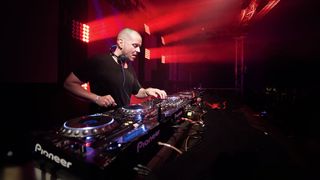
Not worried about putting your musical tool kit out into the big wide world?
"The days when you worry about stuff like that are long gone. The whole business has changed… you can't be just one man sitting alone in your own private world. And releasing a record is no longer just about numbers. Sure, with some records, you're interested in sales - if it's a commercial release with big names involved and you're looking for it to work on the radio - but sometimes you release a track to say, 'This is what I stand for; this is my musical reputation.'
"And then you have some records that are in between those two categories. If you take a track like Mammoth [2013 link-up with Dimitri Vegas and Like Mike], it wasn't really a big chart hit, but it's a great track that everybody knows, and we've had over 100 million YouTube views."
Any idea how much 100 million views means to your bank manager?
"Haha! I can't imagine I'll be retiring just yet!"
Moguai's new single, Hold On ft. Cheat Codes, is available now via Positiva. His current tour of Germany goes on until November, and you can listen to his radio show, Punx Up The Volume, online or on the airwaves around the world.


Computer Music magazine is the world’s best selling publication dedicated solely to making great music with your Mac or PC computer. Each issue it brings its lucky readers the best in cutting-edge tutorials, need-to-know, expert software reviews and even all the tools you actually need to make great music today, courtesy of our legendary CM Plugin Suite.

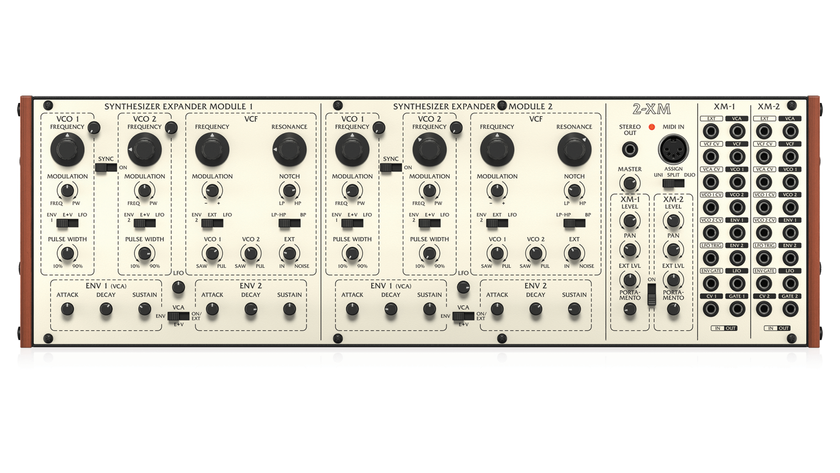
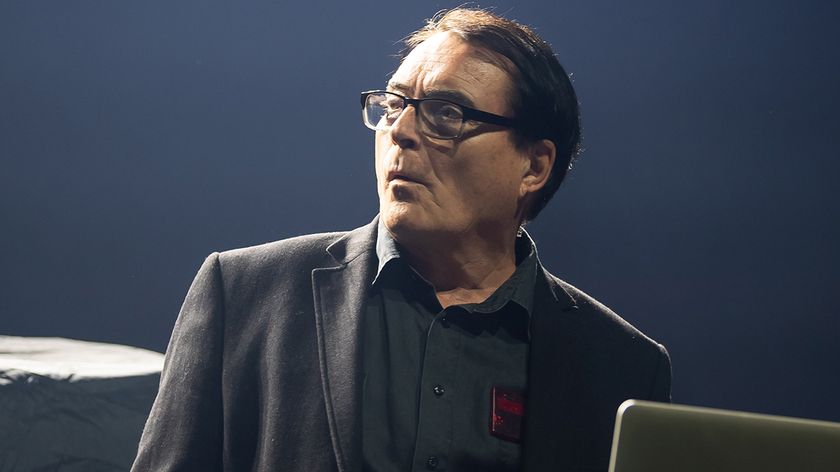
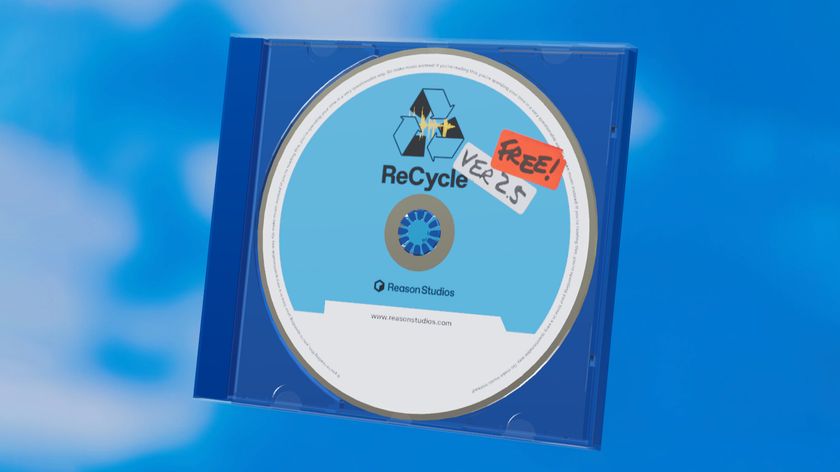
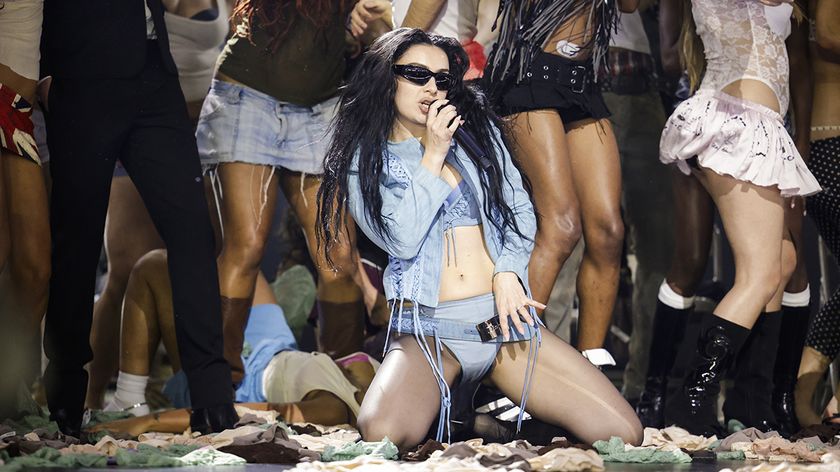
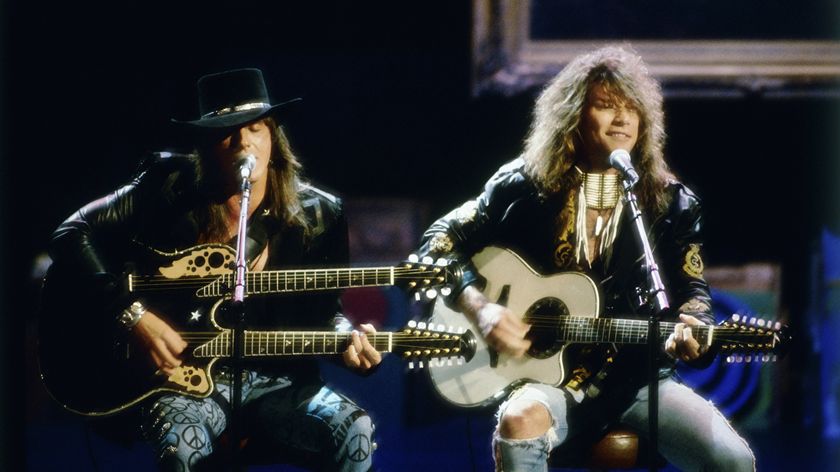
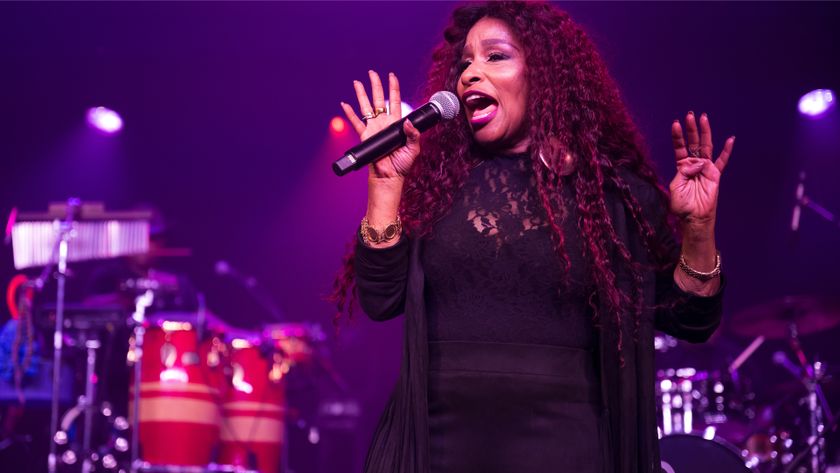
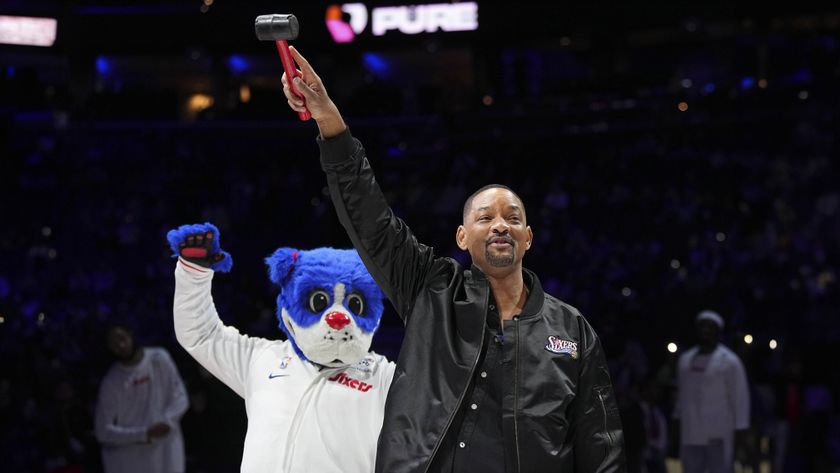


![Chris Hayes [left] wears a purple checked shirt and plays his 1957 Stratocaster in the studio; Michael J. Fox tears it up onstage as Marty McFly in the 1985 blockbuster Back To The Future.](https://cdn.mos.cms.futurecdn.net/nWZUSbFAwA6EqQdruLmXXh-840-80.jpg)